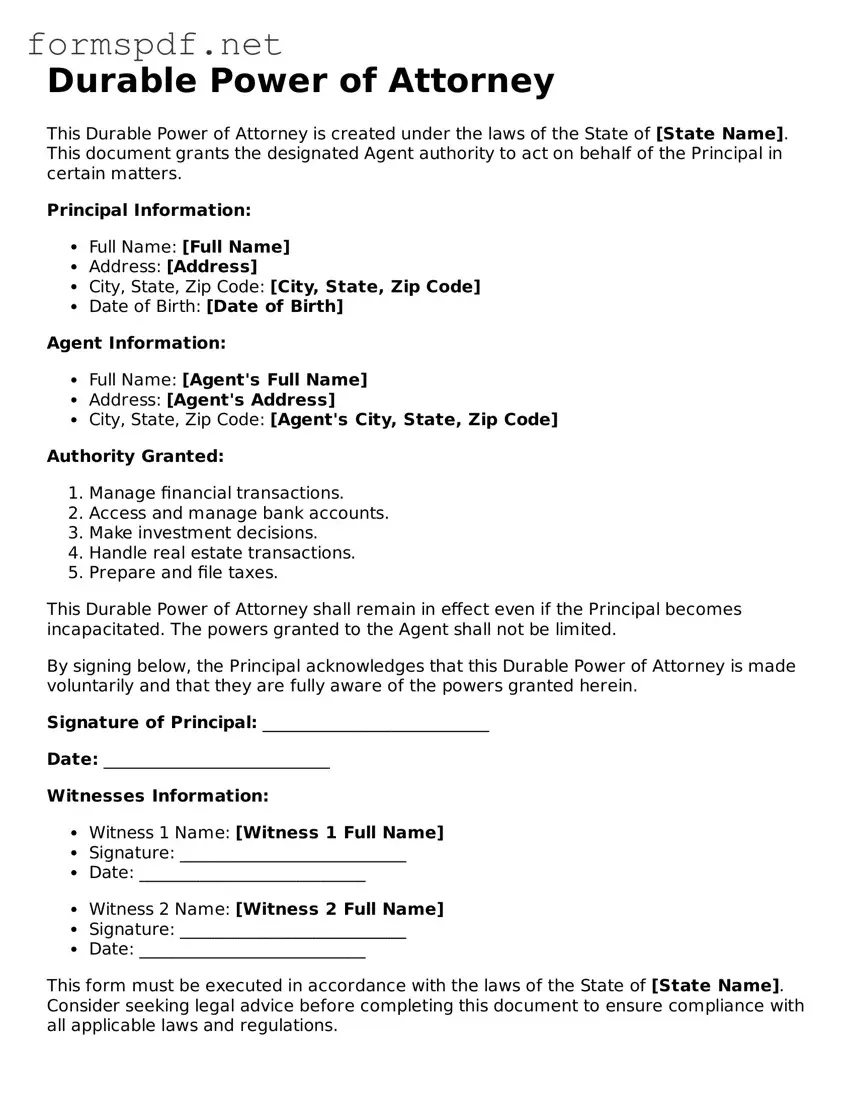Fillable Durable Power of Attorney Form
A Durable Power of Attorney form is a legal document that allows you to appoint someone to make decisions on your behalf if you become unable to do so. This form ensures that your financial and healthcare choices are respected, even when you cannot communicate them yourself. Understanding its importance can help you protect your interests; consider filling out the form by clicking the button below.
Launch Editor Now

Fillable Durable Power of Attorney Form
Launch Editor Now

Launch Editor Now
or
⇓ Durable Power of Attorney PDF
Don’t leave without finishing the form
Finish your Durable Power of Attorney online and download the final version.